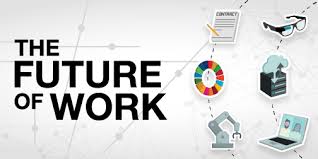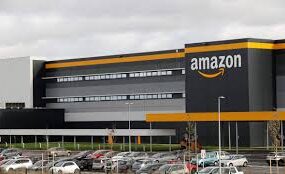

Introduction:
In the realm of technological advancements and evolving industries, the future of work is a subject of intense scrutiny and speculation. From automation to artificial intelligence, the landscape of employment is undergoing profound transformations, raising pertinent questions about the role of humans in a workforce increasingly dominated by machines.
Technological disruption:
However, amidst the whirlwind of technological disruption, one fundamental truth remains constant: the irreplaceable value of human ingenuity, creativity, and empathy. While automation may streamline processes and enhance efficiency, it is the human touch that imbues work with meaning, innovation, and adaptability. Therefore, the future of work as we gaze into the horizon of the future of work, it becomes imperative to adopt a human-centric approach that celebrates and harnesses the unique capabilities of individuals.
The future workforce:
One of the defining features of the future workforce is the symbiotic relationship between humans and technology. Rather than viewing automation as a threat to job security, we should embrace it as a catalyst for human empowerment. Automation has the potential to eliminate mundane tasks, freeing up time and mental energy for workers to focus on higher-order thinking, problem-solving, and innovation. The future of work by leveraging automation as a tool to augment human capabilities, organizations can unlock new levels of productivity and creativity.
The future of work will witness:
Moreover, the future of work will witness a paradigm shift in the traditional concept of employment. The rise of the gig economy and remote work arrangements is redefining the boundaries of traditional employment models, offering individuals greater flexibility and autonomy in how, when, and where they work. This shift towards a more fluid and dynamic workforce not only enhances work-life balance but also fosters a culture of trust, empowerment, and inclusivity.
Changing work structures:
In addition to technological advancements and changing work structures, the future of work will be shaped by a renewed emphasis on human-centric values. As machines take on repetitive tasks, the value of uniquely human qualities such as emotional intelligence, empathy, and interpersonal skills will become increasingly invaluable. In a world where human connections are more important than ever, cultivating a workplace culture that prioritizes collaboration, diversity, and well-being will be essential for success.
The future of work presents unprecedented opportunities:
Furthermore, the future of work presents unprecedented opportunities for lifelong learning and skill development. In a rapidly evolving landscape, adaptability and agility will be the currency of success. Organizations must invest in continuous learning initiatives and upskilling programs to empower employees to navigate change, embrace innovation, and thrive in an uncertain future.
The future of work is not a binary choice between humans and machines:
Ultimately, the future of work is not a binary choice between humans and machines but a harmonious integration of both. By embracing a human-centric approach that values the unique strengths of individuals, fosters collaboration and innovation, and prioritizes well-being and lifelong learning, we can create a future where work is not merely a means of livelihood but a source of fulfillment, purpose, and collective progress. As we embark on this journey towards the future of work, let us remember that the true measure of success lies not in technological prowess alone but in our ability to harness technology to enhance the human experience.
- Adaptability: As work environments become more dynamic, the ability to adapt quickly to changing circumstances will be crucial for success.
- Empowerment: With advancements in technology and remote work capabilities, individuals may feel empowered to take ownership of their work and schedules.
- Resilience: The future of work may require individuals to navigate through challenges and setbacks with resilience and determination.
- Connection: Despite digital advancements, the need for genuine human connection and collaboration in the workplace will remain essential for productivity and well-being.
- Flexibility: Work arrangements may become increasingly flexible, allowing individuals to balance work with personal commitments and lifestyle preferences.
- Innovation: Embracing creativity and innovation will be key to staying competitive in rapidly evolving industries and markets.
- Well-being: Employers may prioritize the well-being of their employees, recognizing the importance of mental and physical health in driving productivity and satisfaction.
- Purpose: Workers may seek meaningful work that aligns with their values and contributes to a larger societal or environmental purpose.















